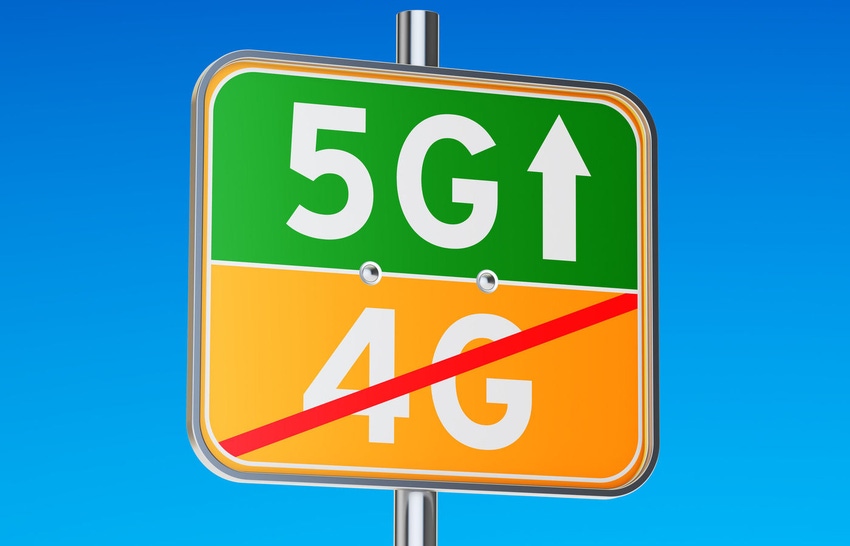5G is here but it is coming up at a time when customer experience is becoming a key performance metric that will determine not only if a mobile service provider will remain competitive and relevant but also in business.
October 8, 2018

Telecoms.com periodically invites expert third parties to share their views on the industry’s most pressing issues. In this piece Quah Mei Lee, Industry Principal Analyst at Frost & Sullivan, offers some food for thought for mobile service providers.
5G is here but it is coming up at a time when customer experience is becoming a key performance metric that will determine not only if a mobile service provider will remain competitive and relevant but also in business. It is an opportunity for new revenue streams and lower cost to serve, particularly in the more lucrative and profitable enterprise segment. However, mobile service providers all across Asia Pacific are still trying to understand how to monetize 5G.
The LeadersIn 5G Executive Summit held in Singapore on 19 September 2018 addressed some of the challenges and opportunities in moving from LTE to 5G as well as focus areas and action items that will be needed by mobile service providers to move their business plan for 5G along. 14 senior executives from regional mobile network operators and vendors attended the meeting. Frost & Sullivan summarizes some of the key thoughts from the summit here:
Current practices really need to go… but it is really hard and we know this…
Short term, narrow focus with unrealistic projections
Silo approach to partnerships and solutions
Technology strategy planning that is never really optimal
In a way, 5G might be just what mobile network operators need to address customer experience woes. Choosing to embark on the journey towards 5G will bring about new ways of thinking and working to come up with end to end services through partnerships that focus on the same end customer. The prize is the ability to regain competitiveness against fibre players and to get back on a growth trajectory.
Key Questions for Business Strategy practitioners of Mobile Service Providers
Do you really understand customer needs?
Do you know how to leverage on your company’s specific strengths to monetize 5G?
Is partner and vertical selection based on fit with your company’s vision or who is convenient?
If you don’t really understand customer needs, monetization in the 5G era is only going to get harder. There is a lot of data out there that is only now starting to get processed. Bit by bit, we are starting to really and truly understand customers. Instead of building solutions so that they will come to you, you need to go out and walk with them. It is no longer about communications technology being pushed by GSMA. It is now about addressing needs through communications. The mobile services business is no longer just about enabling communications between people. It is now about enabling industry growth through solutions built through partnerships to meet the needs of the jointly targeted customer base.
If you can’t do scale, you can’t do 5G. 5G requires leveraging on scale. Unless you are after the wholesale market for 5G, unique niches and leveraging on government support to drive initial volume might be the way to fund initial investments in 5G. 5G is not so much for the consumer as it is for enterprise but the opportunity within the enterprise segment also depends on the stage of digitalization and maturity of the vertical in question in the local market. The key here is to be selective. Existing partnerships can be leveraged holistically to expedite innovations to market. You will need to revisit long standing partner relationships as well as business models, and co-create. Capitalize on the edge that 5G will provide. Monetize your customer base through new 5G services e.g. AI processing. Help verticals to digitalize faster to meet their needs e.g. B2B needs analytics, and solve pain points e.g. revenue leakage.
Key Questions for Technology Strategy practitioners of Mobile Service Providers
Do you have a strong enterprise segment service offering?
How should your technology strategy evolve for 5G?
Can you build a flexible, lean and cost efficient network that will meet the needs of the customer instead of building a network that you can or know how to build?
The enterprise segment will become important for 5G monetization. You will need to relook your enterprise segment strategy taking into account that the current technology ecosystem is not geared for the next set of enterprise service offerings. You will need to foster an open dialogue to create a platform to support all current ecosystem players e.g. OEMs, vendors and managed service providers, and future ecosystem players. Digital services, software defined virtualized infrastructure and security will become the 3 key pillars for 5G. You will need to define the technology strategy roadmap around these pillars.
Overall, 5G will play a key role in modernizing and transforming digital businesses in a digital environment. Understanding local demand and needs as well as industry collaboration are key to 5G monetization. Trials by mobile service providers together with equipment suppliers are leading to addressing this and increasingly helping with business models formulation. Successful end to end solutions require synergistic partnerships and co-creation. For this to happen, the necessary partnerships need to be forged and workable business models and end to end solutions need to crystalize. Also, as with other disruptions, regulations too need to catch up with new 5G use cases. Regulators need to understand and be open to new rules for the Intelligent Digital age.
For mobile service providers to tap on the opportunities, a lot of effort to plan needs to go in and from now. Will you take up the challenge?
 Quah Mei Lee is an Industry Principal Analyst with the Frost & Sullivan ICT practice. She leads Mobile & Wireless Research for Asia-Pacific. Her area of expertise lies in telecoms and payments strategy and she has completed several key strategy projects for leading mobile network operators in the region. Supported by her expert team, she drives thought leadership in telecoms and payments strategy and mobile digital services research.
Quah Mei Lee is an Industry Principal Analyst with the Frost & Sullivan ICT practice. She leads Mobile & Wireless Research for Asia-Pacific. Her area of expertise lies in telecoms and payments strategy and she has completed several key strategy projects for leading mobile network operators in the region. Supported by her expert team, she drives thought leadership in telecoms and payments strategy and mobile digital services research.
Read more about:
DiscussionAbout the Author(s)
You May Also Like








.png?width=300&auto=webp&quality=80&disable=upscale)


_1.jpg?width=300&auto=webp&quality=80&disable=upscale)


.png?width=800&auto=webp&quality=80&disable=upscale)